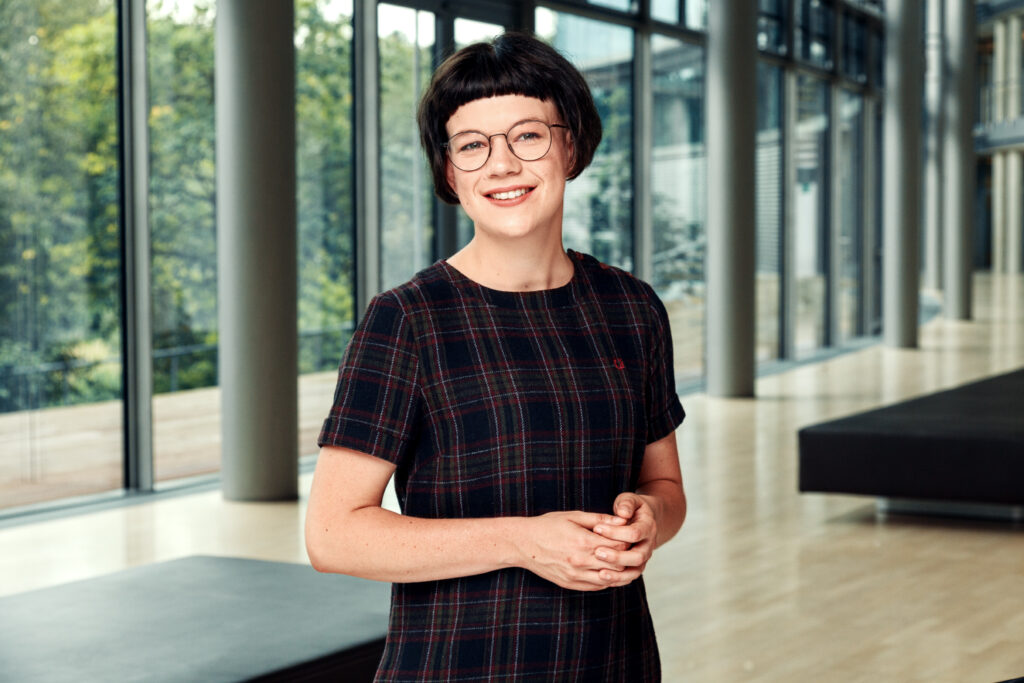In the meet the team series, we introduce a member of the research group every week to give an impression beyond the scientific work. For this purpose, our student assistant Philippe Sander asked us a few questions.
Today in the interview: Katharina Holec. She is a sociologist and works on descriptive and substantive representation in participatory decision making and legitimacy beliefs. More information on Katharina’s research can be found here.

What inspired you to pursue a career in your research field, and how did you get started in your field?
I started studying social sciences because I was interested in the dynamics of social inequality. During my studies, I realized that it is really interesting how researchers try to make these dynamics measurable. I learnt a lot about statistics and especially tried to acquire the necessary methods to research them myself. I did not want to stop researching these dynamics at the end of my studies, so I decided to explicitly try to measure how they might be (re)produced by political decisions in the context of political consultation.
Can you describe your current research project and what you hope to achieve with it? What do you personally find the most interesting about it?
My research is about the current biases in consultative participation. I work on questions like (1) who is involved in consultative participation procedures, (2) how are these people involved and (3) how their involvement relates to their legitimacy beliefs. Democracy is built on the thought of inclusion of citizens into the policy-making process through participation. While the approach of consultative participation of issues relevant to questions of everyday life may be a good idea at first, it does not always work. While some (usually resource rich individuals) participate, others do not. So, in the end not every interest is represented. This stands in contrast with the idea of equal democratic participation and is therefore interesting and important to explore.
Wie gehst du bei deiner Forschung vor? Welche Methoden, Theorien oder Frameworks verwendest du?
I try to make differences between socio-economic groups in the field of mobility visible by looking at their social practices. I am particularly interested in the conceptualization of the outcome, i.e., the question for whom living conditions are improved by consultative participation procedure. Methodologically, I take a quantitative approach and work with a mixture of confirmatory factor analyses, OLS-regression, and panel regressions.
What are some of the biggest challenges you face in your work and how do you overcome them?
During the collection of data, I am always confronted with the problem of not being able to represent all social groups equally well, as some participate in surveys while others do not. This makes research in a field that aspires awareness regarding inequality dynamics a bit more difficult. Further, I wonder how to address the issue that data is a great way to approximate realities, but should be interpreted with caution especially when some groups tend to participate more often in surveys than others. Of course, good data and good analysis remain the best way to approximate reality.
How do you stay on top of the latest trends and developments in your field?
Mainly through platforms like Twitter and ResearchGate, but also by meeting with research groups and attending colloquia and conferences, as well as regularly searching for new articles in relevant journals.
How do you collaborate with other researchers or experts in your field to improve your projects?
Primarily through colloquia and conferences, but also through regular exchange with the colleagues from the CIMT project. It definitely helps to establish routines through which one maintains discussion on the research topic.
What impact do you hope your research will have on society or the field?
I am hoping that based on various research (not only done by me) tools can be developed that help to make more perspectives visible in consultative participation.
Can you tell us about any interesting or meaningful experiences you had during your research?
I had some very interesting experiences during the collection process for the survey data in the project. I was the contact person for those who were asked to participate. However, learning about these reasons helps to understand why some groups are less well represented by research than others, which ultimately also enables a better interpretation of the results.
What advice do you have for students and aspiring scientists just starting out in their careers?
I would recommend to be curious and have fun with the topic you are working on. Good research is not produced under much time pressure but with constant and intense work.
Lastly, can you tell us a little about yourself outside of your work? What hobbies or interests do you pursue in your spare time, and how do they complement your research?
I DJ in clubs and am a guitarist/singer in two bands. guitar in two bands and sing. These activities make my everyday life much better.

